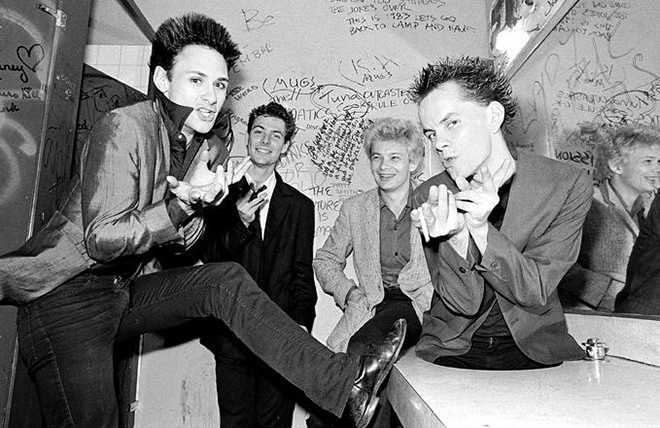
John Waters
When venerated English orchestra conductor Sir Thomas Beecham (1879-1961) allegedly denigrated Seattle as an “aesthetic dustbin” shortly before December 7, 1941, perhaps he was presciently predicting our fair city’s future failure to premiere the notorious 1972 John Waters transgressive cinema tour-de-force Pink Flamingos prior to the New Year’s Day of America’s bicentennial year.
Apocryphal transatlantic snobbery notwithstanding, the date in focus here stands as a minor milestone within countercultural Seattle history, marking the ad hoc stage debut of glam-punk pioneers the Tupperwares as well as the local silver-screen debut of Divine’s infamous dinner date with dogshit.
The truly tacky Pink Flamingos concerns a competition amongst a coterie of deeply creepy people for the title Filthiest Person Alive. Divine (birth name: Harris Glenn Milstead, 1945-1988), ever the transgressive transvestite, takes the cake, so to speak, by scarfing down poppin’ fresh dog feces in an obviously unedited sequence towards the film’s gruesome grand finale.
The infamous film’s inaugural Seattle screening occurred at the Moore Egyptian Theatre at 1932 Second Avenue downtown. Dennis Nyback (1953-2022), future Pacific Northwest film archivist, was the projectionist for the event.
Along with Pink Flamingos, the event organizers wanted an appropriately trashy musical ensemble to open the show. Enter Ze Whiz Kidz, Seattle’s erstwhile mavens of sartorial mayhem. They had disbanded sometime in 1975, but for the Pink Flamingos event, three Whiz Kidz alumni — namely, Tomata du Plenty, Rio de Janeiro, and Melba Toast — gathered together again and named themselves the Tupperwares.
Each one taking turns on lead vocals, the Tupperwares were backed by the Telepaths, now considered by many to have been Seattle’s first true punk band. Each Tupperware sang one original song on lead, with Tomata performing “I’m Going Steady with Twiggy” (co-written by Erich Werner and Bill Rieflin of the Telepaths) and Rio performing “Eva Braun.” A third song, “Instamatic Fanatic,” with Melba on lead, was canceled at the last minute.
Mike Henderson, Seattle Post-Intelligencer film critic, obviously failed to properly grok the virtues of transgressive creativity in his January 9, 1976, Pink Flamingos review, wherein he primly opined:
Depending on your tolerance threshold, when you walk out at the end of Pink Flamingos — or, in all likelihood, sometime during Pink Flamingos — you’ll want to find the nearest lavatory. There, again, depending on your orientation, you’ll wish you’d brought your toothbrush and shower utensils, because after you vomit you’ll want to do more than just wash your hands.

Tomata du Plenty, lavatory sink
photographer unknown
The Tupperwares would later evolve into Los Angeles electropunk legends the Screamers, fronted by Tomata du Plenty. The Telepaths would later evolve into the Blackouts, Seattle’s premier post-punk band circa 1979.
Sources: Mike Henderson, “The Grossest Movie of All Time?” Seattle Post-Intelligencer, January 9, 1976, Area 206 (arts supplement section), p. 23; Clark Humphrey, Loser: The Real Seattle Music Story (Feral House, 1995; MiscMedia, 1999, 2016); Roger Downey, “Glitter and Be Gay: The inspirational extravagance of Seattle’s Whiz Kidz,” Seattle Weekly, June 27, 2002, p. 30; Brian Miller, “Bumbershoot: Remembering Ze Whiz Kidz and Their Glam-Punk Descendants,” Seattle Weekly, September 1, 2015.